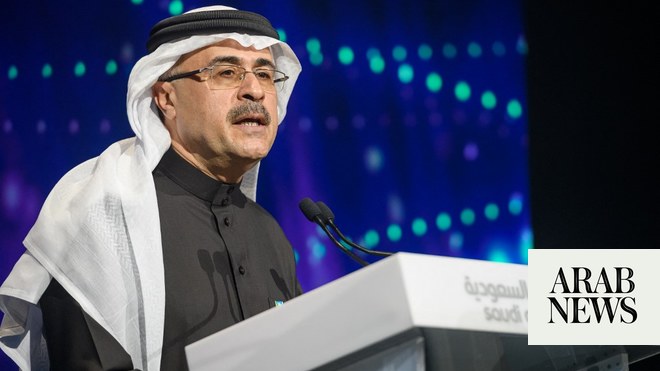
The Saudi government is still committed to a stock market flotation for Saudi Aramco, but any initial public offering would have to wait until after the acquisition and integration of Sabic, which would “take some time”, according to Aramco’s CEO Amin Nasser.
Aramco’s planned acquisition of a majority stake in Sabic is central to its plans to diversify its revenues and prepare for tighter constraints on greenhouse gas emissions.
Speaking to the Financial Times, Nasser indicated the talks were at an “early stage”, but the Sabic deal would help accelerate Aramco’s plans to develop its chemicals operations.
“Sabic has a strong market position, [and is] vertically integrated: there’s a lot of synergy with Saudi Aramco,” Nasser said, adding that it’s a very strategically good fit with what “we are aspiring to be, which is [to be] deeper in the downstream sector.”
Nasser noted that Aramco was “not a major player yet” in chemicals, and like other large oil companies including ExxonMobil and Royal Dutch Shell, it wants to build up its operations in that industry.
He said he expected the market for chemicals to grow by about 3 percent per year on average, while the market for transport fuels was growing at about half that pace, and the rate of increase was slowing.
Saudi Aramco is working on technologies for converting crude oil into chemicals.
Later, Nasser told CNBC that Aramco has 1.5 million barrels of spare capacity, and the company is ready to supply additional barrels.
Meanwhile, Aramco Trading targets boosting its refined products and crude trading volume by 50 percent to 6 million bpd by 2020, Aramco Trading Company (ATC) President and CEO Ibrahim al-Buainain said Monday.
"Currently ... were at 4 million barrels per day and with expansion, I think our target is 6 million barrels per day," Buainain said at the Asia Pacific Petroleum Conference (APPEC).
About 50 percent of the 2.5 million bpd of oil products it trades are currently hedged, he said.
The company is also looking at building its capacity in trading LNG, using its Singapore office as a trading hub, Buainain said, indicating that the companys office there is expected to grow to 30- 40 people within the next two years.
"We would like the Singapore office to be a hub for our LNG trading, so we are building capacity," he said, adding that Aramco Trading plans to mainly trade in physical LNG cargoes out of Singapore.
In 2010, Aramco’s Board of Directors approved the establishment of Aramco Trading Company (ATC), as a wholly owned subsidiary that trades refined, liquid chemical and polymer products.
It launched operations in 2012, and since then, Aramco Trading has emerged as the Middle East’s premier trading company for refined petroleum products, and the largest shipper in the region.
Buainain has been head of ATC since 2016.
Last Thursday, Aramco announced it was teaming up with major international auto manufacturers to conduct research programmes for developing new fuel and engines, which are able to provide massive environmental and competitive advantages in the coming period.
This new technology depends on capturing CO2 emissions by a state-of-the-art redesigned exhaust system, which stores CO2 in the car’s board to be disposed then, the company said on Twitter.
Meanwhile, Thomson Reuters data showed that the supertanker carrying the first crude oil cargo to a refinery being jointly built by Petronas and Aramco has arrived at Pengerang, as the two companies enter the commissioning and testing phase at the plant.












